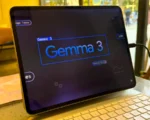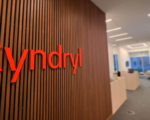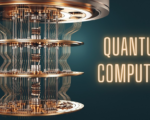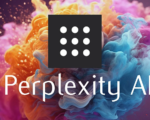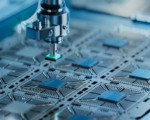Google has announced a groundbreaking achievement in quantum computing, unveiling a new chip named “Willow” that can solve complex problems significantly faster than classical computers. According to the tech giant, its quantum system resolved a computation in just five minutes—a task that would take a classical computer longer than the entire history of the universe to complete.
The advancement was made by Google’s Quantum AI unit, based in Santa Barbara, California. The team emphasized that while the problem solved lacks direct commercial applications, the technology holds immense potential for fields like medicine, battery chemistry, and artificial intelligence. These are areas where today’s computers fall short.
The Willow Chip and Quantum Error-Correction
Willow features 105 qubits, the fundamental building blocks of quantum computers. Qubits operate on principles of quantum mechanics, enabling unprecedented speed, but they are prone to errors due to environmental interference. As the number of qubits increases, the risk of accumulating errors also rises, which has been a major hurdle for quantum computing since the 1990s.
In a research paper published in Nature, Google reported that it has developed a technique to reduce error rates by linking qubits in a way that improves reliability as the number of qubits grows. Importantly, the company demonstrated real-time error correction—an essential step toward making quantum computers viable for practical applications.
“We are past the break-even point,” said Hartmut Neven, head of Google Quantum AI, signaling a key moment in the journey to scalable quantum computing.
Comparisons with Classical and Quantum Rivals
This breakthrough addresses criticisms from Google’s 2019 quantum computing claim, where IBM argued that a classical computer could solve the same problem in two-and-a-half days rather than the proposed 10,000 years. Google adjusted its benchmarks based on feedback and concluded that even under ideal conditions, a classical system would still require a billion years to match Willow’s performance.
While competitors such as IBM and Microsoft are developing chips with more qubits, Google prioritizes making its qubits more stable and reliable. “We’re focusing on building the highest-quality qubits possible,” said Anthony Megrant, Chief Architect of Google Quantum AI.
New Facilities and Faster Innovation
Google previously fabricated its chips at the University of California, Santa Barbara, but the company now has a dedicated fabrication facility. This new setup allows Google to produce chips more rapidly, testing and iterating innovations in advanced cryostats—specialized refrigerators used to maintain the extreme temperatures required for quantum experiments.
Megrant explained the motivation: “If we have a good idea, we want someone to bring it to the cleanroom and test it in cryostats as quickly as possible. This speeds up our learning cycles significantly.”
Looking Ahead
Google’s success with Willow not only marks a milestone in overcoming quantum error challenges but also brings the industry closer to achieving scalable quantum systems with real-world applications. As the race among tech giants intensifies, Google’s focus on precision and reliability could redefine the future of computing.



